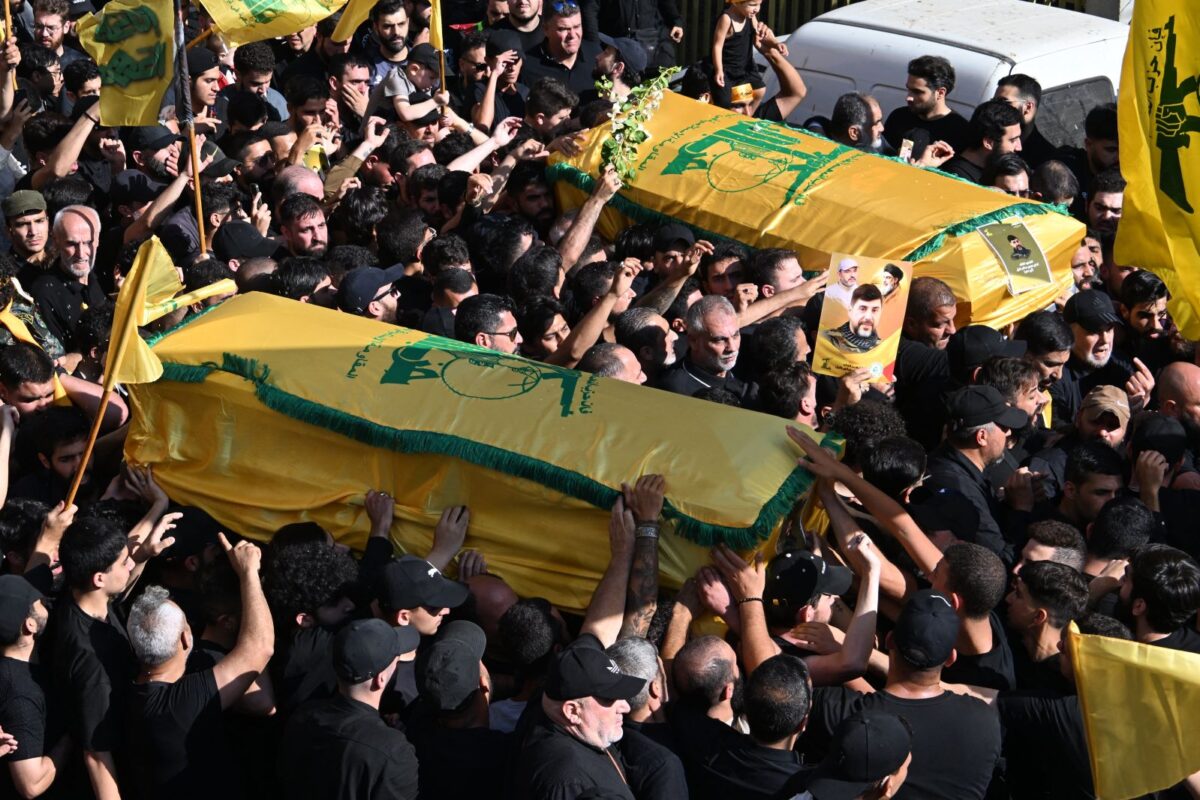
The Lebanese government’s decision to strip Hezbollah of its arms shattered once and for all the political illusion that the state could continue shielding the so-called “golden equation”—an illusion that has devastated Lebanon, ruined its people, and cursed its neighbors, Arab and non-Arab alike.
Hezbollah’s response, along with that of its followers—from Shi‘a loyalists to self-styled “secular resistors” and whiskey-sipping “revolutionaries”—was predictably aggressive, though still confined to the realm of political vulgarity rather than physical violence. For now, the arsenal of intimidation has been limited to familiar tactics: threats of civil war, calls to split the army, and endless rhetorical contortions. Yet the most insidious reaction has come not from the militia’s partisans, but from those cloaked in the garb of intellectuals—the pseudo-leftists who defend weapons through sophistry, draping themselves in the tattered robes of “progressivism.”
In today’s Lebanon, “enlightenment” is not a lamp that guides us out of darkness, but a rusty oil lantern used to light up an underground weapons cache of a militia that ostensibly takes its order from God and his agents.
Once, the Lebanese Left was the voice of workers, farmers, and the oppressed. Our “left,” however, has been reduced to the voice of PowerPoint slides and Zoom conferences—a donor-dependent circuit that preaches social justice in the morning and pens apologias for “the resistance” by night. The remnants of Lebanon’s “proletariat” no longer march for justice; they smuggle goods across borders or falsify documents to secure visas to the very “decadent” Western states they publicly scorn.
These “enlightened” intellectuals speak of liberty and equality, but only so long as the sanctity of the gun remains untouched. Their secularism applies to churches and mosques, never to the stairwells of Dahiyeh, Hezbollah’s baston of illegality. There, the “progressive thinker” morphs into a preacher, explaining with solemnity that Hezbollah’s arsenal is a “national necessity.”
Since when has enlightenment justified armed guardianship by a foreign power? Only in Lebanon.
We have heard the refrain endlessly: this weapon “liberated the land.” But it has liberated nothing in years. What it has freed us from is the state itself—dismantling our economy, destroying our schools, and extinguishing the hope of a dignified life. Today, the Lebanese is either an emigrant, a prisoner, or a powerless spectator. And the NGO-left cheers this ruin in the name of sovereignty and dignity.
The irony is bitter: those who raise the banner of freedom fear nothing more than freedom itself—the freedom to say “no” to the gun, the freedom to reject being hostages in someone else’s regional project. Instead, they distract with endless debates on “gender” and “women’s quotas,” while turning a blind eye when journalists are beaten or activists are murdered. Their “freedom” is like a chic Beirut café: fine for display, useless in practice.
This hypocrisy was especially grotesque as their ruckus coincided with the anniversary of the Lebanese National Resistance Front of 1982.
Unlike Hezbollah, the pioneers of that resistance—men and women who could be counted on one hand—had the courage to break free of the disease of “weapons for weapons’ sake.” They embraced democracy and real politics. Figures like Elias Atallah, Samir Frangieh, Samir Kassir, Ziad Majed, Hikmat al-Eid, and Nadim Abd al-Samad turned their struggle against the Syrian occupation and Hezbollah’s arsenal into a genuine fight for sovereignty. For their bravery, they were branded traitors—by the very chorus of zealots now defending Hezbollah, the same group that assassinated the giants of resistance, above all George Hawi and Samir Kassir.
There is no left or right when the state is kidnapped. There are only Lebanese who want to live—and collaborators who justify the gun. Enlightenment cannot survive in the shadow of militias. It lives in the open air of law and sovereignty. Everything else is a paid-for lie. And no matter how hard the apologists try to hide behind theories and jargon, they remain part of the mob, happily marching on Tehran’s highway to Beirut, or whatever rubble remains of it.
This article originally appeared in Nidaa al-Watan
Makram Rabah is the managing editor at Now Lebanon and an Assistant Professor at the American University of Beirut, Department of History. His book Conflict on Mount Lebanon: The Druze, the Maronites and Collective Memory (Edinburgh University Press) covers collective identities and the Lebanese Civil War. He tweets at @makramrabah







